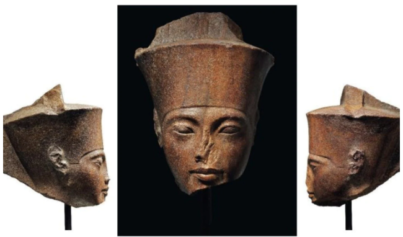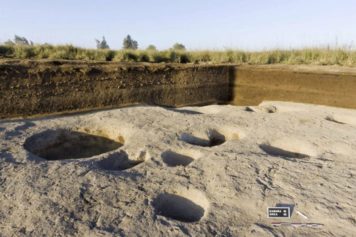There is a profound sense of disappointment in Egypt two years after the revolution that overthrew President Hosni Mubarak, and the anger and frustration was on display today. Hostile protests against the regime of current President Mohamed Morsi took place in cities all across the country, with more than 100 people injured in clashes with police.
In angry chants on the streets and in interviews with journalists, it’s clear that Egyptians feel that the revolution of two years ago was all for naught, as Mubarak was replaced by Morsi, who has shown his own dictatorial instincts. In the meantime, the economic desperation of many has worsened; the government has become even more inefficient and corrupt; and the Muslim Brotherhood has taken command of the country, even writing its harsh form of Islam into the constitution with Morsi’s guidance.
Tens of thousands of protesters thronged in Cairo’s Tahrir Square, where the revolution started in 2011, while smaller crowds gathered in Alexandria, Suez and Port Said, where the Muslim Brotherhood’s political party offices were torched.
There were banners outside the presidential palace in Cairo proclaiming, “No to the corrupt Muslim Brotherhood government” and “Two years since the revolution, where is social justice?” Pointedly, the protesters often chanted the same memorable slogans of revolt against Mubarak, but this time it was directed against Morsi — “Erhal! Erhal!” (“leave, leave”) and “The people want to topple the regime.”
Police firing tear gas clashed with protesters throwing stones. Masked protesters tried to push through the gates outside the presidential palace, eliciting a barrage of tear gas by security forces.
In Menouf and Shibeen el-Koum, two towns in the Nile Delta, protesters blocked railway lines, disrupting train services to and from Cairo.
“Today the Egyptian people continue their revolution,” said Hamdeen Sabahi, a leading opposition leader who finished a close third in the presidential elections held in June. Sabahi told Reuters, “They are saying ‘no’ to the Brotherhood state … We want a democratic constitution, social justice, to bring back the rights of the martyrs and guarantees for fair elections.”
Amr Hamzawy, a prominent liberal politician, wrote on his Twitter feed, “I am taking part in today’s marches to reject the warped constitution, the ‘Brotherhoodisation’ of the state, the attack on the rule of law, and the disregard of the president and his government for the demands for social justice.”
But the Brotherhood dismisses its critics, saying they are fabricating lies and distortions and accusing them of failing to respect the rules of the new democracy that put the Islamists in control via free elections.
Writing in Al-Ahram, Egypt’s flagship state-run daily, Brotherhood leader Mohamed Badie said that the country was in need of “practical, serious competition” to reform the corrupt state left by the Mubarak era.
“The differences of opinion and vision that Egypt is passing through is a characteristic at the core of transitions from dictatorship to democracy, and clearly expresses the variety of Egyptian culture,” he wrote.
Despite weeks of protests, opponents of Egypt’s new Islamist constitution failed to prevent its passing by a large margin in December. The new constitution gained the support of 64 percent of Egyptian voters, according to Reuters. Opponents of the new constitution have argued that it could steer the new government back into the realm of dictatorship, and compromise many of the rights Egyptians won in the Arab Spring revolution of 2011.
Egypt’s Christian minority has been one of the most outspoken dissenting groups in the country, concerned that a Muslim-dominated parliament and Islamic constitution could lead to persecution. The Morsi-led government has argued that a united system under Islamic principles would bring greater stability, and allow the country to work through its ongoing economic turmoil.
“The government calls on the people not to worry about the country’s economy,” Parliamentary Affairs Minister Mohamed Mahsoub said during a speech to the upper house. “We are not facing an economic problem, but a political one and it is affecting the economic situation. We therefore urge all groups, opponents and brothers to achieve wide reconciliation and consensus.”
Morsi and his officials maintain that the country’s recent credit downgrade and the decreasing value of the Egyptian pound are caused by political uncertainty. The pound is approaching an all-time low in value against the U.S. dollar. The country has received a $4.8 billion loan from the International Monetary Fund to help stabilize the economy.


